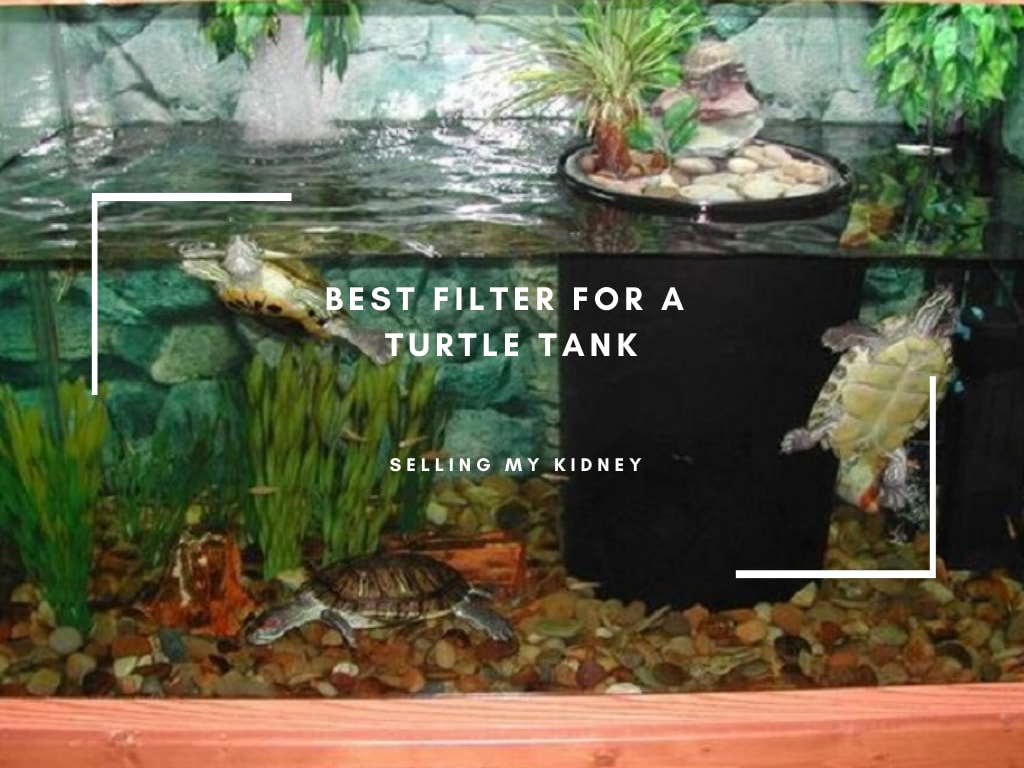Yes, turtles can live in tap water!
Tap water is a great option for keeping your turtle healthy and happy.
It’s easy to maintain the water quality with regular testing and treatments.
Plus, it’s much more affordable than bottled or filtered spring water options.
Turtles need clean, chlorine-free fresh water that has been treated properly.
So they don’t get sick from bacteria or parasites – this makes tap water an ideal choice if you take proper care of it.
Additionally, some species may benefit from trace minerals found naturally in certain municipal drinking waters, which are not present in most bottled/filtered alternatives.
If done correctly (regularly checking pH levels & adding dechlorinator), providing your pet turtle with safe tap water is one of the best ways to ensure their health and well-being over time!
Which Is Better For Your Turtle: Distilled Or Tap Water?
When it comes to your turtle’s water, there are two main options: distilled or tap.
Distilled water is free of minerals and other contaminants in tap water.
However, it also lacks the essential nutrients turtles need for a healthy diet.
Tap water contains chlorine and fluoride, which may harm your pet if ingested over time.
Still, on the plus side, these chemicals help keep bacteria levels low, so they don’t get sick from drinking contaminated liquid.
The best option depends on the environment you set up for them – both have pros and cons!
Pros Of Distilled Water:
- Free from contaminants and minerals
- Easier to monitor ph levels
- No risk of chlorine or fluoride poisoning
Cons Of Distilled Water:
- Lacks essential nutrients for turtles
- It can be expensive if bought in bulk
Pros Of Tap Water:
- Contains necessary nutrients
- Cheaper than buying bottled/distilled water
Cons Of Tap Water:
- It may contain chlorine or fluoride, damaging your turtle if ingested over time.
- Bacteria levels may be higher than in bottled/distilled water.
What Kind Of Water Does A Turtle Need?
Turtles need clean, fresh water to stay healthy.
It’s important that the water is changed regularly and kept free of debris or algae growth.
The temperature should be between 75-85 degrees Fahrenheit (24-29 Celsius).
Turtles also require a source of UVB light for their bodies to process calcium properly.
This can come from natural sunlight or an artificial bulb specifically designed for reptiles.
The type of turtle will determine what kind of environment it needs:
- Aquatic turtles, like red-eared sliders, prefer large tanks with plenty of room to swim around and bask on rocks near the surface.
- Semi-aquatic species like box turtles do best when provided both land areas and shallow pools filled with dechlorinated tap water.
- Land-dwelling tortoises thrive in outdoor enclosures where they can access grassy patches, sandy soil, and logs/rocks. Plus occasional baths
In addition, all types benefit from having hiding spots available so they feel secure while sleeping during daylight hours.
These could include driftwood pieces placed at different depths within the tank/enclosure along with live plants, which provide additional oxygenation & filtration benefits too!
Finally, don’t forget about adding some fun enrichment items like floating toys made especially for reptile use – this help keep your pet entertained throughout its day!
Is Tap Water Ok For Red-Eared Sliders?
Yes, tap water is ok for red-eared sliders.
It’s important to ensure the water’s temperature matches their needs and that it has been treated with a de-chlorinator before use.
Here are some tips:
- Test your tap water regularly using an aquarium test kit. This will help you ensure the safety of your turtle!
- Make sure there’s no chlorine or other chemicals in the tap by treating it with a dechlorinator specifically designed for turtles (available at pet stores).
- Monitor pH levels as well – the average should be between 7-8. If not, adjust accordingly using products like baking soda or special buffers from pet shops/online retailers.
- Change out 25% of tank water daily to keep things clean and healthy – add fresh filtered/treated water when doing so!
This helps maintain good quality conditions inside your turtle’s habitat while preventing any buildup of toxins over time due to overstocking food items.
Is It Better For Turtles To Swim In Cold Or Warm Water?
Turtles prefer to swim in warm water.
Colder temperatures can cause stress and make it difficult for them to move around, find food, or even breathe properly.
Warm water helps turtles stay active and healthy by providing a comfortable environment where they can thrive.
Here are some important facts about why swimming in warmer waters is better for turtles:
- Warmer waters provide more oxygen which allows the turtle’s metabolism to function at its best;
- Turtles have an easier time finding their prey when there’s plenty of warmth available;
- The temperature also affects how quickly eggs hatch if the female lays her eggs on land near bodies of warm water;
- In colder climates, hibernation becomes necessary as cold-blooded animals cannot regulate their body heat like mammals. So having access to warmer areas during winter months is essential!
Finally, many species rely heavily on sunlight exposure from being out in the open air.
This means staying close enough (but not too close!) to shorelines with direct sun rays will help keep these creatures happy & healthy all year round!
Why Is It That My Turtle Refuses To Go Into The Water?
My turtle refuses to go into the water for a variety of reasons.
- It could be that your turtle is scared or stressed out by its environment; this can happen if there are too many people around, loud noises nearby, or bright lights on them.
- Turtles need warm temperatures to swim comfortably and may not want to enter the cold water.
- They might feel unsafe due to predators such as cats and dogs near their tank/pond area, which makes them reluctant to enter the water again after coming up from underneath it already!
- Some turtles don’t like swimming – like humans who prefer staying dry instead of going underwater all day long!
To help encourage your pet’s willingness to get back into the pool:
- Make sure you provide an appropriate temperature range (around 75-85°F) so that they’re comfortable when submerged;
- Create a safe space away from potential threats with plenty of hiding spots where they can relax without feeling threatened;
- Offer treats while introducing new items slowly over time, eventually leading to putting one foot inside, then two feet, etc.
- Be patient – sometimes these things take longer than expected but keep trying every now & then until success is achieved!
Wrapping up: Can Turtles Live In Tap Water?
In conclusion, turtles can live in tap water as long as it is properly filtered and treated.
It’s important to remember that the quality of your turtle’s environment directly affects its health.
Therefore, you should always make sure their habitat has clean and safe water for them to swim in.
Tap water contains chlorine which can be harmful if not removed before adding it into a tank or pond.
This means using an appropriate filter system, such as activated carbon filters or reverse osmosis systems, essential when setting up a home for your pet turtle!
Additionally, regular partial changes of the aquarium/pond will help keep toxins from building up over time while providing fresh oxygenated waters with beneficial bacteria colonies needed by aquatic life forms like turtles.
Access to freshwater sources (tap) and natural bodies of water (rivers & lakes) provides optimal conditions for any species living within these environments.
So why not give our beloved pets what they need?


